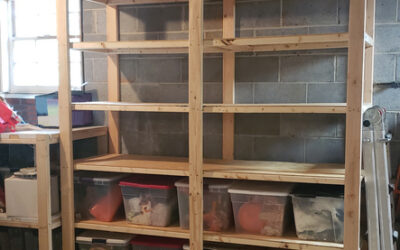Responding to social-distancing practices prompted by the coronavirus pandemic, self-storage operators big and small are favoring “no touch” over the human touch.
In recent weeks, a number of self-storage operators have rolled out, beefed up or promoted “contactless” options for renting units. But Robert Chiti, chairman and CEO of Phoenix, AZ-based self-storage technology provider OpenTech Alliance, said “contactless” storage is simply a new name for the more than 15-year-old concept of self-service storage.
“With the social-distancing requirements of today, operators that have not embraced self-service in the past are now rushing to catch up,” Chiti said.
Joining the ‘contactless’ revolution
Those climbing aboard the self-service bandwagon include self-storage REITs CubeSmart and Life Storage, along with independent operators like Beyond Self Storage, Simply Self Storage, Storage Asset Management and Store Space.
Here’s a rundown of how their coronavirus-inspired approaches:
- Malvern, PA-based CubeSmart said it has introduced the ability to complete the rental process online or over the phone at its New Jersey facilities and soon will make the feature available nationwide. As with other self-service offerings, CubeSmart’s program enables someone to avoid person-to-person contact.
- Before the coronavirus crisis, Life Storage’s Rent Now self-service platform enabling “skip-the-counter” rentals was in place across its entire portfolio. The Williamsville, NY-based company said it is adding a new tiered pricing feature to the Rent Now platform, which should be rolled out to all of its facilities sometime in the second quarter of 2020. In a news release, Life Storage CEO Joe Saffire said almost 25 percent of its rentals had come through Rent Now during one week in March.
- At Tampa, FL-based Beyond Self Storage, customers already could access “contactless” options like online reservations, remote customer support and no-touch facility entry. Now, the company is marketing those options under the “COVID-19 Conscious” banner.
- Simply Self Storage, based in Orlando, FL, recently launched its self-service “Simple Rental” platform, which had been in the testing-and-development phase since December 2019.
- York, PA-based Storage Asset Management said it has offered self-service rentals at its managed facilities (currently 228 properties) for nearly six years and also provides them at its 100 Storage Sense-branded locations. In a news release, the company said no-contact rentals are “imperative in not only providing an excellent customer service experience, but also in protecting its employees during this COVID-19 pandemic.”
- Winter Garden, FL-based Store Space now provides “touchless rentals” at all of its locations through its Storage360 platform. In a news release, the company said it was “rethinking the rental process and removing the close personal contact that is so often involved with the spread of coronavirus.”
Closing the technology gap
Self-storage experts said they expect other storage operators to follow the lead of companies like CubeSmart and Store Space. Otherwise, experts said, the stragglers will lose business to their tech-savvy competitors.
“The gap between the operators that are keeping up with new technological advancements and, more importantly, customer preferences is widening,” Chiti said, “and at some point operators that have fallen behind will see a significant impact on their financial performance. They will be forced to sell their business at reduced values or hire a third-party management company to bring them up to speed.”
Aside from losing business, self-storage operators that fail to embrace no-contact storage could help spread the coronavirus, endangering employees and customers, self-storage consultant Tron Jordheim said.
Running ahead or running behind?
Even before the coronavirus epidemic, Chiti said operators that installed self-service technology found customers appreciate the around-the-clock convenience, and found they’re able to reduce labor costs by adjusting their office hours to more closely align with customer traffic patterns.
In reaction to the pandemic, some operators have smoothly transitioned to contactless rentals, Jordheim said. Others have not, though.
“Some have had to make no changes to their standard procedures,” he said. “Some merely put a sign on the door saying, ‘Sorry, no in-person office meetings to maintain social distancing,’ directing people to use the website, the app or the call center phone number.”
The new normal
Jordheim and Chiti anticipate no-contact rentals will become more commonplace as a result of broader acceptance of self-service technology.
“If and when things return to some normalcy, many customers will continue to enjoy the contactless systems. On-site staff will find they are more productive without so many people in the office,” Jordheim said.
On the other hand, he said, some customers who’ve been socially isolated during the coronavirus pandemic might long for in-person interaction with on-site employees once the illness has subsided.
Still, Jordheim envisions no-contact storage rentals becoming a standard feature in the industry, with person-to-person service perhaps commanding a premium price.
“People-to-people contact will become a luxury or won’t even be available at many storage places,” he said. “Operators who offer people-to-people contact will find this is a positive differentiation when competing for new business.”
For his part, Chiti sees a marriage of “no touch” and “human touch” approaches.
“For as long as I can remember, many self-storage operators have equated good customer service with the human touch. In today’s environment, it is the opposite — contactless,” he said. “I feel that as the challenges with the virus pass, operators will settle somewhere in the middle.”







